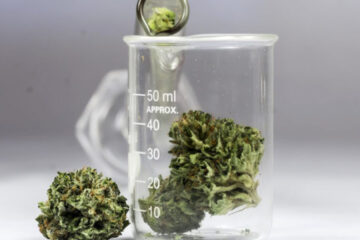
Are you a new mom struggling to produce enough breast milk? Look no further! This article delves into the fascinating world of prolactin, the hormone responsible for milk production in lactating women. From understanding its role in lactation to exploring natural ways to boost its levels, we have got you covered.
Prolactin is the maestro behind milk supply, orchestrating the production and release of this vital nourishment for your little one. We will discuss how the proper diet, adequate hydration, and regular nursing sessions can help stimulate prolactin release. Additionally, we will explore the benefits of herbs like fenugreek and blessed thistle, which have been used for centuries to enhance milk production.
Whether you’re a first-time mom or an experienced one looking for solutions to enhance your milk supply, this article is your go-to guide. We aim to provide accurate information and practical tips to increase your milk production naturally. Say goodbye to worrying about a low supply and confidently embrace the joy of breastfeeding. Let’s dive in and unlock the secrets to boosting prolactin levels for a flourishing milk supply.
Understanding Prolactin And Its Role In Milk Production
Prolactin, often called the “milk hormone,” plays a crucial role in lactation by signaling the mammary glands to produce milk. This hormone is produced by the pituitary gland at the brain’s base. During pregnancy, prolactin levels increase significantly in preparation for breastfeeding.
One of prolactin’s essential functions is stimulating the alveoli in the breasts to secrete milk in response to the baby’s suckling. This process is known as the “let-down reflex,” where milk is released into the ducts and made available for the infant to feed. Prolactin levels typically surge during nighttime feedings, leading to a healthy milk supply.
In addition to promoting milk production, prolactin also influences maternal behavior, fostering the emotional bond between mother and child. The release of prolactin during breastfeeding can induce feelings of relaxation and well-being, and it is often referred to as the “love hormone.”
Common Causes Of Low Milk Supply
Low milk supply can stem from inadequate glandular tissue, infrequent feedings, ineffective latch, medications, hormonal imbalances, and maternal stress. Addressing these with proper breastfeeding techniques, support from a lactation consultant, and managing underlying health conditions can help improve milk production.
The Benefits Of Natural Methods To Increase Milk Supply
Enhancing milk supply naturally involves incorporating nutrient-dense foods, adequate hydration, and herbal supplements. Foods like oats, flaxseeds, and almonds support milk production, while herbs such as fenugreek, blessed thistle, and fennel seeds stimulate lactation. Maintaining skin-to-skin contact, practicing responsive breastfeeding, and creating a peaceful environment boost prolactin levels, promoting milk supply and bonding between mother and child.
Foods And Herbs That Can Naturally Boost Prolactin Levels
Certain foods and herbs can boost prolactin levels and support milk production in lactating women. Fenugreek and blessed thistle are popular galactagogues known for enhancing milk supply. Including these herbs in your routine can optimize milk production naturally. A balanced diet of iron, calcium, and vitamins D and B12 also supports maternal health and lactation.
The Importance Of Breastfeeding On Demand For Milk Production
Breastfeeding on demand, or responsive feeding, is crucial for maintaining a healthy milk supply by stimulating prolactin release and promoting milk production. Responding to your baby’s hunger cues and offering the breast as needed ensures adequate milk supply and supports optimal growth. Regular pumping can mimic the demand-supply cycle for infants unable to breastfeed directly to maintain milk production and provide necessary nutrition.
Effective Breastfeeding Techniques For Maximizing Milk Supply
Effective breastfeeding techniques maximize milk supply and ensure efficient milk transfer. Proper latch and positioning prevent nipple pain and low milk supply. Ensure your baby’s mouth covers the area, and their chin is against your breast. Experiment with nursing positions. Breast compressions during feeding encourage milk flow. Seek guidance from a lactation consultant or healthcare provider for further support.
Lifestyle Changes That Can Support Milk Production
Incorporating healthy lifestyle habits can positively impact milk production and breastfeeding success. Adequate rest, proper nutrition, regular hydration, and stress management support lactation and optimize milk supply. Ensuring enough rest, practicing self-care, maintaining a balanced diet rich in essential nutrients, and staying hydrated all contribute to a positive breastfeeding experience and help maintain an optimal milk supply.
The Role Of Stress Reduction In Promoting Milk Supply
Stress can significantly impact milk supply by disrupting hormonal balance and reducing prolactin production. Managing stress through yoga, meditation, or aromatherapy can promote relaxation and support lactation. Creating a calm breastfeeding environment and seeking support from family, partners, or support groups can alleviate anxiety and enhance the breastfeeding experience.
Prolactin Maestro: An Overview Of A Natural Supplement For Increasing Milk Supply
Natural supplements like Prolactin Maestro offer a safe and effective solution for mothers seeking to enhance their milk supply. This herbal supplement, containing fenugreek, blessed thistle, and other galactagogue herbs, stimulates prolactin release to support optimal lactation. Incorporating Prolactin Maestro into your daily routine can boost milk production and ensure a plentiful milk supply for your baby, making it a convenient addition to your breastfeeding journey.
Conclusion: Empowering Mothers To Naturally Enhance Their Milk Supply
In conclusion, understanding the role of prolactin in milk production and using natural methods to boost its levels can help mothers enhance their milk supply. Focusing on proper nutrition, hydration, responsive breastfeeding, practical techniques, and stress management optimizes lactation. With the help of foods, herbs, lifestyle changes, and natural supplements, mothers can overcome low milk supply challenges and confidently enjoy breastfeeding. Seeking support from healthcare providers, lactation consultants, and fellow mothers offers valuable guidance and encouragement.
What are blue lotus gummies and their benefits?
March 24, 2025Role of shockwave therapy in treating relationship-related ED
February 27, 2025Tips for Consuming Delta-8 Gummies for Gamers
January 27, 2025
Comments are closed.






